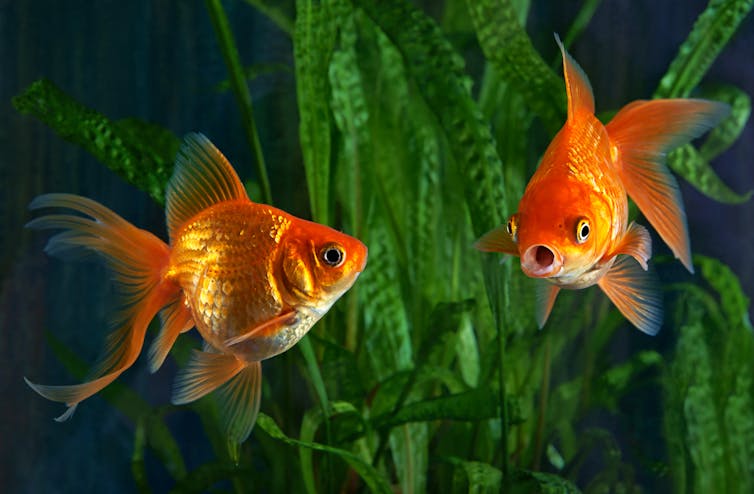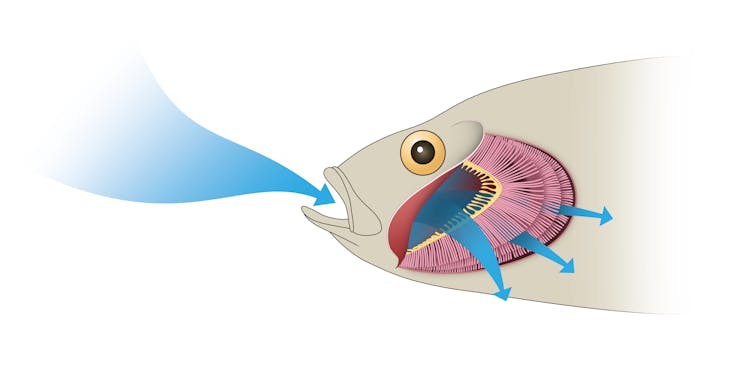Curious kids: how do gills work?
- Written by Culum Brown, Professor, Macquarie University
How do gills work? Tully, aged 7
Great question, Tully! Animals on land breathe air, which is made up of different gasses. Oxygen is one of these gases, and is made by plants (hug a plant today and say thanks). All animals need to breathe in oxygen to survive.
When the air goes into our lungs, oxygen goes into our blood and is delivered all around the body. Air is light, so it’s easy to move around. This makes it pretty easy to breathe air back and forth — a bit like blowing up balloons and letting them deflate.
Read more: Curious Kids: have people ever seen a colossal squid?
Things are different for fish. Fishes also need oxygen, but rather than getting it from air, they have to get it from water.
But there is less oxygen available in water than air. And to make matters worse for the poor fishes, water is thicker than air, so it takes much more work to move it around. This makes the problem of getting that oxygen in the fishes’ body even harder.
 Fish take in water through their mouths, where it passes over their gills.
Shutterstock
Fish take in water through their mouths, where it passes over their gills.
Shutterstock
Rather than breathing in and out through the mouth, fish use a one-way system, passing water in one direction over their gills.
Water goes in the mouth, across the gills and out through the opercula (the bony covering protecting their gills).
But gills and lungs are more similar than you might think. Both have really big surface areas which increases the amount of water or air that touches the gill or lung tissue, and so increases the amount of oxygen available.
 Water goes in the mouth, across the gills and out the other side.
Shutterstock
Water goes in the mouth, across the gills and out the other side.
Shutterstock
What’s more, the walls of the lungs and gills are very thin and loaded with tiny tubes that transport blood (called “capillaries”).
This means the capillaries come into close contact with the air or water outside, letting oxygen pass across the thin walls and into the blood. At the same time, carbon dioxide, which is a waste product from our bodies, passes out.
Gills are also important for controlling how much salt is in the body, but let’s leave that story for another day.
Hello, curious kids! Do you have a question you’d like an expert to answer? Ask an adult to send your question to curiouskids@theconversation.edu.au
Read more: Curious Kids: when fish get thirsty do they drink sea water?
Authors: Culum Brown, Professor, Macquarie University
Read more https://theconversation.com/curious-kids-how-do-gills-work-150375






